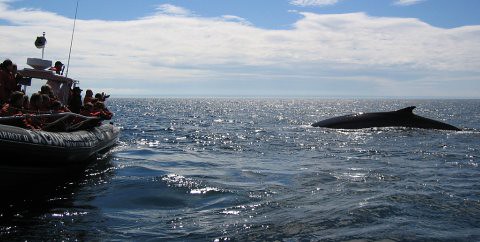On Thursday, President Obama ordered government agencies to ramp up pressure on Iceland to end its slaughter of endangered fin whales, the second largest whale species. But the president stopped short of imposing trade sanctions. He issued a Message to Congress with the details, including this passage:
Of particular concern to the United States, Iceland harvested 125 endangered fin whales in 2009 and 148 in 2010, a significant increase from the total of 7 fin whales it commercially harvested between 1987 and 2007.
This is what that harvest looks like (video from Greenpeace):
There are thought to be around 30,000 of these giants, the second largest whale species, in the North Atlantic.
I was lucky enough to see a few in 2004, while writing about humanity’s evolving relationship with whales from the vantage point of Tadoussac, Quebec. — a spot where whales centuries ago were slaughtered on the beach but where crowds now gather on the rocks to watch spouting blue, sperm, minke and other whale species feeding. Here’s one photo from that visit: Read more…




